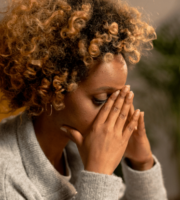The continued spread of COVID-19 has led to extensive quarantine measures being implemented around the globe. Many countries have already issued national lockdown orders to one extent or another, and most others are actively implementing mild quarantine measures while contemplating more serious ones. While some communities have weathered the spread of COVID-19 more capably than others, certain underprivileged populations like immigrant communities and prisoners have been bearing the brunt of the virus.
Here’s a review of how COVID-19 is impacting immigrant populations, detainees, indigenous groups, and other communities frequently left behind by government assistance programs.
Detainees are waging hunger strikes
Prisoners who are forced into cramp, unsanitary conditions are substantially more vulnerable to medical ailments than most people, even in ordinary times. During times of crisis, prisoners are even more endangered than usual, as their close proximity to others and lackluster access to healthcare services all but ensure their vulnerability. In an effort to protest the danger they’re being placed in, some prisoners and detainees are beginning to wage hunger strikes in order to garner public attention.
More than 150 immigrant detainees in Pennsylvania have launched a hunger strike to demand their release amidst the spread of COVID-19, for instance, arguing that their continued detainment is a public health risk to both themselves and others. They cite previous examples like an outbreak of Mumps that hit a Texas detainee center last year, which infected hundreds of adults and required the intervention of a personal injury lawyer.
Immigration detainees also argue that regular prisoners are being released for public health reasons. Advocates note that both prisoners and those correctional facility workers who maintain their prisons are vulnerable to contagions when working in such conditions. According to one report from NBC News, local and state officials across the nation have already begun releasing non-violent offenders, including some detained migrants, to avoid the spread of the outbreak.
Other communities are in desperate need of help
Underprivileged communities undergoing treatment for addiction are generally those communities ignored by government assistance programs, especially when they come from the federal government. Many Native American tribes are bracing for the spread of COVID-19 through their communities because they’re uniquely vulnerable due to a lack of pre-existing healthcare infrastructure. They fear that without serious governmental assistance, which isn’t usually forthcoming even in the best of times, the contagion could decimate the local population and particularly impact the elderly in these communities.
Low-income individuals across the United States are also uniquely suffering due to the continued spread of COVID-19; according to one study, not even half of Americans have enough savings to cover a three-months-long emergency, and the COVID-19 outbreak is expected to continue for months to come. Food Banks across the country are calling for donations, and governmental assistance programs at both the state and national level are being expanded to offer more aid to everyday citizens.
The United States Senate recently reached a landmark agreement to pass the largest stimulus measure in the nation’s history. President Trump signed the relief bill passed by the Senate into law last week, and additional future measures from the government are expected, as well.
Find accurate, verifiable information about COVID-19 at the CDC”s official webpage.






My brother suggested I might like this web site.
He was totally right. This post truly made my day.
You cann’t imagine simply how much time I had spent for this
information! Thanks! https://vanzari-parbrize.ro/parbrize/parbrize-nissan.html